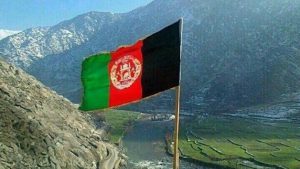May 22 and Rise of an Easy question; who is an Alternative to Ghani?
At this critical point that inflation and economic problems, insecurity, terrorism, possibly a civil war and the collapse of the system threaten the whole country, it is necessary that all political forces put aside “stubbornness” and gather around the main axis of the system.

There is an anecdote, saying that Nader Afshar’s chief judge summoned his “murderer” and asked him why did you kill the king. He was an “oppressor”, the murderer answered. Now, where can we find a “just” king to sit in his place, the chief judge told the killer. This anecdote is the proof of these-days politics in Afghanistan.
According to article 61 of the Afghan constitution, May 22 (Jawza the first) is the end of the 5-year period of the government. Although this verdict of the law has not been taken seriously in the country, it seems that “first of Jawza” in Afghanistan has turned into politics’ “axis of differences”.
The presidential palace (Arg)’s oppositions unitedly call on Mr Ghani to step down, while circles close to Arg insist on staying in power.
Here, one doe no seeks to legitimize one of the parties, but this question should be made clear that who is an “alternative” to the current government and whether there is any guarantee that the country would not head towards chaos if Ghani steps down.
The author is neither fond of Mr Ghani’s strategic thinking nor grateful for the political gathering of the critiques.
The governance of Ashraf Ghani, undoubtedly, has many ups and downs in the past five years. It has worked well in some sectors and many sectors have had a descending posture. The level of public satisfaction with the work of the system has immensely reduced and Kabul gradually placed in political isolation – both from a domestic and foreign point of view. Economically, the monopoly of capital was formed and the centralized political power of Afghanistan became more concentrated than ever in the hand of a particular circle. Politically, according to the statistics provided by international organizations and entities, freedom of expression is more limited, political tyranny became wider and consequently, corruption is more common.
But the fundamental question is that can the critics guarantee, finding an alternative team if the current administration steps down. The critics that when in government keep silence, but when they are driven out of the power, put all the blames on the government.
The same critics have repeatedly proved that they joined coalitions but when their interests are in danger, quit them. They have repeatedly criticized the government, but broken all of their commitments, promises, and slogans once they have seen the government’s green light. These critics have brought about many social problems for the country’s citizens, both in terms of protests and political crisis. The value of the national currency has sharply fallen and commodity prices have risen in the markets due to the same crisis.
We all know that except a few government’s critics, who have plans and roadmap for the government’s replacement, Arg’s general oppositions neither have a program for governance nor political and intellectual alignment. Their current alliance has just one reason, opposing Ghani. When this factor obviated, their alliance will no longer exist. To act sentimentally and gamble with the community’s assets, for what? For personal goals and so-called hating someone. Consequently, the critical remarks and warnings by critical politicians seem to be more of an electoral campaign than the implementation of the constitution.
At this critical point that inflation and economic problems, insecurity, terrorism, possibly a civil war and the collapse of the system threaten the whole country, it is necessary that all political forces put aside “stubbornness” and gather around the main axis of the system.